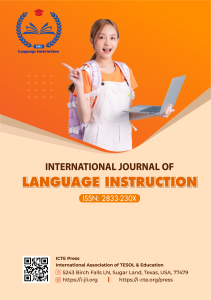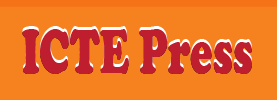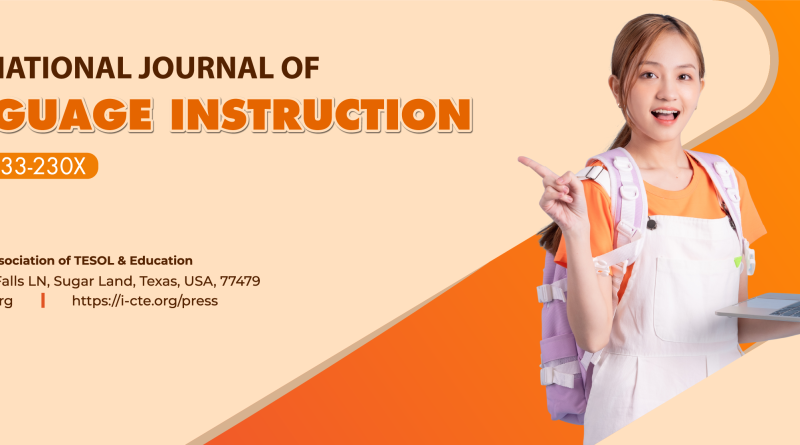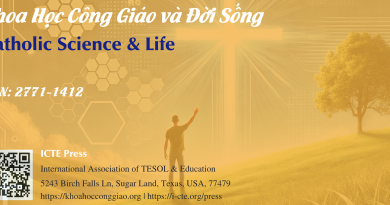Vol. 2 No. 3 (2023): Language Instruction

Full Issue
Dear authors and colleagues,
We are delighted to welcome you to the current issue of the International Journal of Language Instruction, Volume 2, Issue 3. We are happy to provide a broad collection of research papers that throw light on numerous aspects of language education and learning as we dig into the contents of this issue.
This issue includes a thought-provoking case study by Nguyen Thi Thu Hang titled “EFL Teachers’ Perspectives towards the Use of ChatGPT in Writing Classes: A Case Study at Van Lang University.” This research provides new viewpoints on the usefulness of integrating technology, notably ChatGPT, within the setting of writing courses.
Phan Thi Thuy Quyen’s contribution, “EFL Students’ Perceptions towards Cooperative Learning in Writing Skills at a University in the Mekong Delta,” continues on the path of EFL pedagogy by delving into the world of cooperative learning and its impact on writing skills among university students in the Mekong Delta region. The data presented in this article provide an overview of new teaching approaches and their consequences.
The tremendous difficulties posed by the COVID-19 epidemic have prompted schools all across the globe to respond quickly. Vo Thi Thu Suong and Le Thi My Nho’s “An Investigation into the Perception of Online Teaching and the Challenges of Online Teaching Faced by English Lecturers at Quang Trung University During the COVID-19 Outbreak” delves into the experiences and challenges faced by English lecturers during this critical period, shedding light on the transformative nature of online education.
With Nguyen Thi Tuyet-Nhung’s work, “Exploring Vietnamese EFL Students’ Perceptions towards Literature Courses in English Studies Programme,” we shift our emphasis to courses within English Studies programs. This research investigates Vietnamese EFL students’ impressions of literature courses, bridging the gap between language education and literary appreciation.
As editors of the International Journal of Language Education, we are glad to offer a forum for these important contributions to the subject of language education. The study featured in this issue adds to our knowledge of language teaching and learning and creates a greater awareness of the intricacies and obstacles that educators and students encounter.
We thank the writers for their devotion and hard work in creating these enlightening pieces. We would also like to thank our renowned editors and reviewers for their crucial criticism, which helped ensure the research’s quality and rigor.
With warm regards,
Assoc. prof. dr. Pham Vu Phi Ho
Editor-in-Chief
International Journal of Language Instruction




